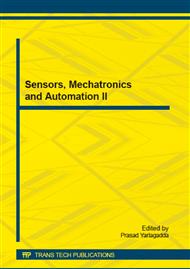p.648
p.653
p.658
p.665
p.669
p.674
p.679
p.683
p.688
A Bandwidth Allocation Strategy for Train-to-Ground Communication System of Urban Mass Transit
Abstract:
Train-to-ground communication system as an important part of the train control system , its performance is essential to guarantee the high safety and efficiency of train operation. However, due to the disturbances caused by movement speed of trains ,terrains, and other environmental interferences ,the existing communication system is often unable to provide a high speed link that is stable enough. Therefore, a reasonable bandwidth allocation strategy is necessary to solve the discrepancy between the demanding data rates and the insufficient bandwidth. This paper propose a bandwidth allocation strategy based on 0-1 knapsack problem and Asymmetric Nash Bargaining Solution, which can effectively reflect different bargaining power of all kinds of services, and improve the reliability and security of the transmission system. Finally, we operate a network simulation by NS2. The simulation show that the proposed scheme can enhance the rate of resource utilization ,get small and stable communication delay and ensure reliable transmission of the high-priority services and the safe operation of the train.
Info:
Periodical:
Pages:
669-673
DOI:
Citation:
Online since:
March 2015
Authors:
Price:
Сopyright:
© 2015 Trans Tech Publications Ltd. All Rights Reserved
Share:
Citation:


